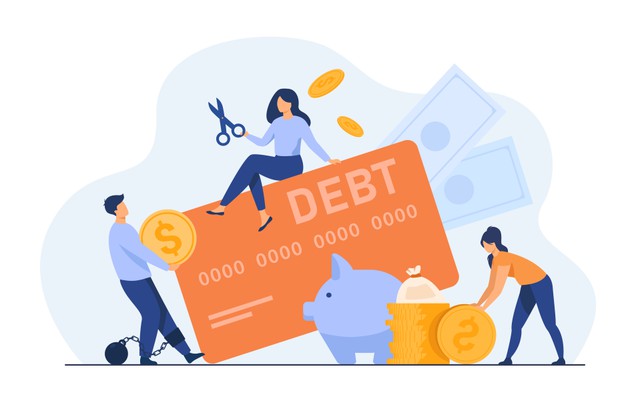While credit cards have come ot to be one of the most preferred financing tools in recent time, reckless spending habits are among the common reasons why individuals end up in a credit card debt. With overburdening use, maxed out credit cards cannot be used during financial crises, making them more of a hassle than a convenience.
According to a recent report, credit card debt in the country shrank by 10% in the April-June quarter 2020 opposed to a 22.5% growth last year. This reversal in credit behaviour is a positive sign, considering the unstable economy following nationwide lockdown. However, unpaid loan against credit card or debts accruing due to unpaid bills can still end up leaving adverse impacts on the economic stability of credit card users, impacting the nation as a whole.
Macroeconomic effects of Credit Card Debt
A recently concluded stress test by the Reserve Bank of India predicted that the gross bad loans within the country would rise to their highest in almost 20 years. According to RBI’s July 2020 Financial Stability Report, NPAs in the financial sector could increase to 14.7% of total loans by March next year.
Unsettled loans against credit card also run the risk of federal debt rising to unprecedented levels. There are four significant consequences to unpaid loans or debts on credit cards, which are discussed below in brief.
- A decrease in national savings and income
Rising debts means financial constrainst, which can directly lead to decreased investments and higher interest rates, and carry adverse effects on national savings as a whole. Higher interest rates mean individuals would end up repaying more instead of saving or investing, which can hamper the overall growth of an economy.
- Inability to respond to crises
On a macroeconomic scale, decreased income due to limited repayments means the concerned governments will not have sufficient funds to address unforeseen events, such as epidemics and pandemics, wars, and natural disasters.
- Further fiscal crises
As debt continues to climb, investors also lose confidence in the federal bodies and financial institutions demand higher interest rates on debt. A sudden spike in interest rates can result in grave economic consequences, leading to losses for the stock market, pension funds, and insurance companies.
How to manage credit card debt?
The credit card features provided by card issuers can be suitably rewarding if individuals know how to utilise them to their true potential smartly. Take a look at some of the effective ways to monitor and manage credit card debt.
- Opt for a personal loan
There are many beneficial reasons to opt for a personal loan on credit card. EMI schedules as set by the financiers reduce the burden of payment on an individual. Further, as the repayment is spaced out and the interest rates are typically lower on loans against credit cards, it only simplifies repayment.
- Check spending habits
One of the best ways to avoid falling into the credit card trap is controlling negligent spending habits. Create a budget according to the credit limit, and try to minimise the credit utilisation for easy repayment.
- Repay more than the minimum amount due
Paying the minimum amount due waivers off the penalty charged on the credit card during a billing cycle. However, the entire outstanding is added to the next cycle, which in turn accrues interest at high rate anyway. An effective way to get out of this debt spiral is to repay more than the minimum amount due and reduce the total outstanding. Explore and choose from several convenient options to pay credit card bills for timely payment of the dues.
- Avoid cash advances
Cash advances usually carry a higher interest rate than other transactions made using a credit card. Each credit card usually has a cash advance limit as a percentage of the credit limit, beyond which the issuer will charge interest at substantial rates.
Using credit cards such as the Bajaj Finserv RBL Bank SuperCard, customers can also withdraw interest-free cash from ATMs for up to 50 days, which can help remarlably during a cash crunch.
To further improve user experience and make the entire process hassle-free, the NBFC issuing the card also provides pre-approved offers on products like personal, business loans, and credit cards. You can check your pre-approved offer by submitting your name and contact details.
Loans against a credit card can be beneficial in case of financial emergencies, but only if the expenses are controlled. Monitor the credit card statement closely and report any suspicious or unauthorized charges immediately to the issuer. Furthermore, keep track of the outstanding balance and make regular payments to avoid a negative impact on the credit score as well
